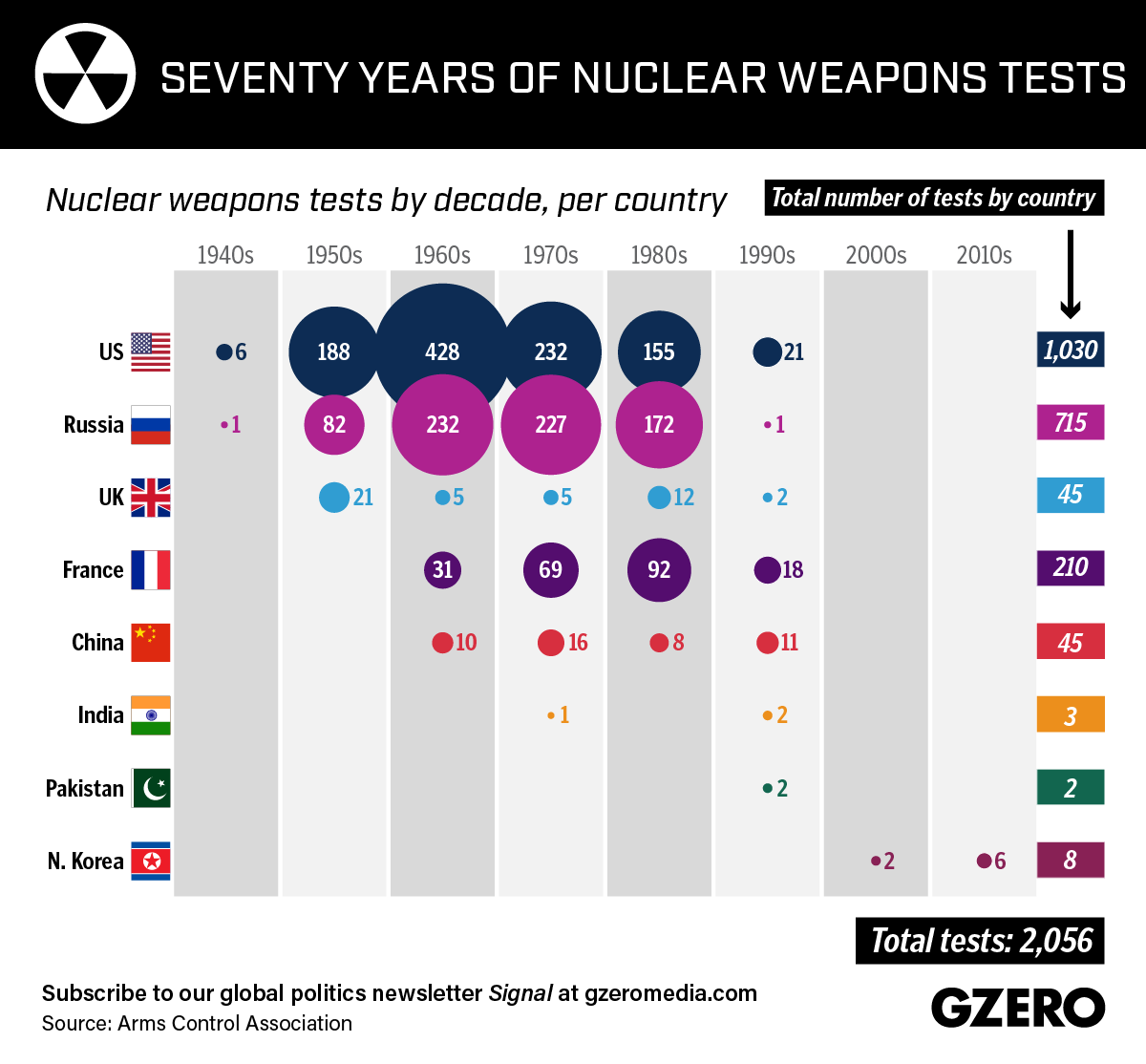Graphic Truth: Seventy Years of Nuclear Weapons Tests
August 29 marked International Day Against Nuclear Tests, which aims to call attention to the effects and dangers of nuclear explosions. The economic and human cost of nuclear testing over the past seventy years has been well documented, leading to a vocal movement calling for a total ban on nuclear tests. Partial test bans were agreed during the Cold War but in 1996 the US became the first of more than 180 countries to sign a treaty that completely banned nuclear tests. Just three years later, however, the US Senate rejected it over concerns it was unenforceable and would tie Washington's hands. The treaty has not been ratified by India, Pakistan or North Korea – all of whom have tested nuclear weapons since 1996. Overall, more than 2,000 tests have been conducted by just eight countries. Here's a look at who has exploded the most nuclear warheads over the past 70 years.
